#Siu-Wong Fan
Text

birds gotta eat
135 notes
·
View notes
Text
The Super Podcast Episode 166 - Movie Swap with The Legend of the 7 Golden Vampires (1974) and Riki-Oh: Story of Ricky (1991)
The Super Podcast Episode 166 - Movie Swap with The Legend of the 7 Golden Vampires (1974) and Riki-Oh: Story of Ricky (1991)
The Super Podcast
Episode 166
Movie Swap with
The Legend of the 7 Golden Vampires (1974) and Riki-Oh: Story of Ricky (1991)
Download HERE
https://supermarcey.files.wordpress.com/2023/05/the-super-podcast-episode-166-movie-swap-with-the-legend-of-the-7-golden-vampires-1974-and-riki-oh-the-story-of-ricky-1991.mp3
Welcome back to The Super Podcast and a Movie Swap episode with your hosts Super…

View On WordPress
#Movie Swap#peter cushing#podcast#Riki-Oh: Story of Ricky (1991)#Siu-Wong Fan#Super Podcast#The Legend of the 7 Golden Vampires (1974)#The Super Podcast
2 notes
·
View notes
Text




Herman Yau - The Untold Story (1993)
#film#Herman Yau#Cho Wai Kei#The Eight Immortals Restaurant#the untold story#Bat sin fan dim#Yan yuk cha siu bau#Anthony Wong Chau Sang#1993
13 notes
·
View notes
Text
Riki-Oh: The Story of Ricky (力王)
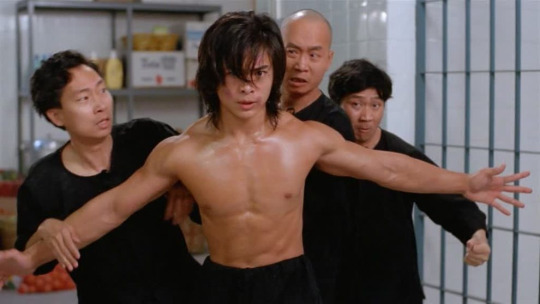
Summary: Ricky Ho/Lik Wong (Fan Siu-wong) is a young man with extraordinary fighting abilities. When he winds up in jail for manslaughter, he must do whatever he can to survive.
Campy, silly, fun Hong Kong actioner made for five dollars and some dirt whose dub adds Carpenter-esque dimension, weirdly enough.
Rating: 4/5
Photo credit: Asian Movie Pulse.com
#riki oh the story of ricky#力王#1991#lam nai-choi#action#splatter#hong kong#cantonese#Fan Siu-wong#Fan Mei-sheng#Ho Ka-kui#Yukari Oshima#Frankie Chen#4#film reviews#film review#twenty-words-or-less#twol#week 1
5 notes
·
View notes
Text
On February 6, 1997 Riki-Oh: The Story of Ricky debuted in Germany.
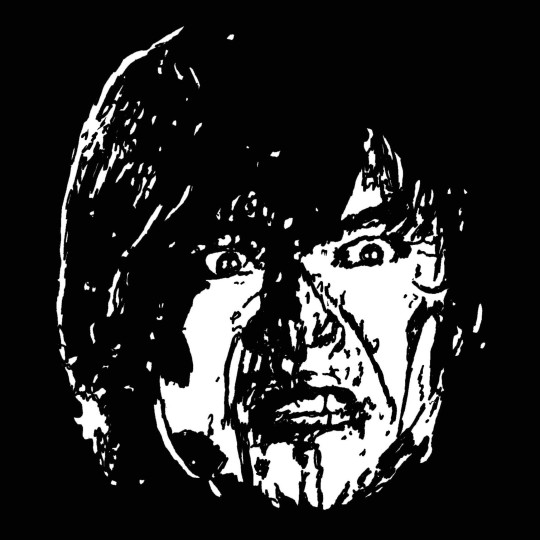
#riki oh#riki oh: the story of ricky#story of ricky#lam nai choi#fan siu wong#splatterpunk#splatter movie#splatter comedy#splatter film#splatter#dystopian film#obscenity#golden harvest films#movie art#art#drawing#movie history#pop art#modern art#pop surrealism#cult movies#portrait#cult film#tcm underground
1 note
·
View note
Text

A rare behind the scenes shot of Wong Kwai Hung, Yukari Oshima and Fan Siu Wong of the set of Riki-Oh: The Story of Ricky (1991)
#Wong Kwai Hung#Yukari Oshima#Fan Siu Wong#Riki-Oh: The Story of Ricky#hong kong action cinema#cult cinema#1991#the nineties
0 notes
Text
RIKI OH: THE STORY OF RICKY
In crooked prison
Young man brings ultra violence
To bring down warden
youtube
#Riki oh#the story of Ricky#random richards#poem#haiku#poetry#haiku poem#poets on tumblr#haiku poetry#haiku form#poetic#Lik Wong#Siu Wong fan#mei sheng fan#Ka Kui Ho#Yukari Oshima#Ngai Choi Lam#Tetsuya Saruwatari#Masahiko takajo#Kan wing tsang#Koichi Sugisaki#Frankie Chi Leung Chan#criterion channel#Youtube
0 notes
Text
Ip Man (2008)
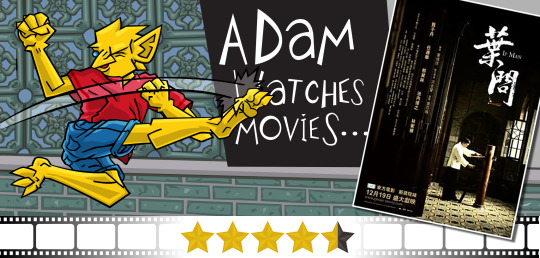
Ip Man is a marvel. It tells a great story that allows you to become invested in its characters. It also delivers the kind of fight scenes that will have you on the edge of your seat despite already knowing who will win at the end. If Donnie Yen wasn’t already on your radar, he will be after this.
Based on true events, Wing Chun master Ip Man (Donnie Yen) is the undisputed master of martial arts in Fohsan - a city renowned for its schools of hand-to-hand combat. After the Japanese invade China in 1937, General Miura (Hiroyuki Ikeuchi) recruits former masters and pits them against his Karate students as part of their training. Though Ip Man has always shunned fighting for its own sake, he is pulled into the conflict.
A quick summary of the film does not do it justice, as the story is essentially split into two parts. The first is dedicated to building up our protagonist. In other martial arts films, this would mean humble beginnings, an early defeat, the meeting of a master, many training montages and then a victorious rematch. Ip Man begins with its titular character already at the top of his game. The fights are partially about showing you how good he is at deflecting blows and retaliating but mostly, they’re used to tell you who Ip Man is. When he engages a fellow teacher in his own home, Ip Man insists on keeping the results of the fight a secret because he knows he’s the best. He chooses to fight behind closed doors because he knows Liu Chiu (Gordon Lam) needs to maintain a certain reputation and pride to make a living. When the formidable Kam Shan-chu (Fan Siu-wong) stomps into town looking for a fight, you’re not watching, wondering Ip Man will lose, you’re looking forward to seeing him in a duel with someone who isn’t his friend. See what director Raymond Wong did there? There’s an escalation between the two battles because of the relationships.
The second part begins when Foshan is utterly devastated by the invading Japanese. The stakes felt high before. Now they are for different reasons. You don’t think Ip Man could lose a fight but wonder what a victory might cost him. General Miura may admire Chinese martial arts… but he’s still at the head of an army that massacred thousands and his second-in-command (Tenma Shibuya) is eager to cut down anyone that would stand up to them. If Ip Man isn’t harmed, his his wife, Cheung Wing-sing (Lynn Hung) or son might be. Using the number of opponents, Ip Man’s mood, his family, his opponents and the setting, director Wilson Yup continuously finds ways to keep you on edge.
The action scenes are masterly choreographed. We see Ip Man fighting all sorts of different opponents and to mix things up, we also get to see other martial artists take on villains using a variety of styles. You feel the impact of every strike but you don't want to miss a single second of the action and prevent yourself from closing your eyes as you wince. For any one of them, Ip Man is worth seeing but this is not the kind of movie that’ll make you want to jump from one fight to the next. The quieter moments are just as important/compelling. They give you a necessary break from the action and allow the actors to show off their dramatic chops. We don’t demand convincing performances from martial arts movies - they already do so much with the stunts - so this picture is going above and beyond.
There are a few blips in the 108-minute running time where Ip Man can feel just the teeniest bit nationalistic - even though I’d say the Japanese invaders are handled remarkably evenhandedly considering everything. Still, there are a couple of shots here and there where non-Chinese audiences will wonder “What are you REALLY trying to say here, movie?” It’s nothing that’ll bother you too much, not when what you came to see is this well done. Thanks to the wartime setting and the main character’s family given much more attention than expected, this is a surprisingly layered film, a great pick if you’re trying to get someone else into martial arts films. They won’t even mind the subtitles because the drama is strong enough on its own. This is just the first part in a long series and I can't wait to see what's next. (Original Cantonese with English subtitles, March 5, 2021)

#Ip Man#movies#films#movie reviews#film reviews#Wilson Yip#Edmong Wong#Chan Tai-lee#Donnie Yen#Simon Yam#Lynn Hung#Gordon Lam#Fan Siu-wong#Xing Yu#Chen Zhihui#Hiroyuki Ikeuchi#Tenma Shibuya#2008 movies#2008 films
1 note
·
View note
Text

Louis Fan Siu-wong
Fan is the son of Fan Mei-sheng, an actor contracted to the Shaw Brothers Studio. When he was 14, his father sent him to Xuzhou, China, to learn gymnastics and wushu.
After completing his studies, Fan returned to the Hong Kong film industry, and starred in Stanley Tong's Stone Age Warriors (1991). In 1992, at the age of 18, Fan portrayed the titular character in Riki-Oh: The Story of Ricky, a Hong Kong film based on the manga Riki-Oh. He claims that the director and producers of the film met him at the Hong Kong Airport upon arrival and immediately offered him the role. Being a young, up-and-coming actor, he took the role without knowing what it was. He later said he was shocked to discover how bloody and violent the Riki-Oh manga was.
Fan was a contract artiste under the Hong Kong television station TVB throughout the 1990s, and he starred in several television dramas, including Demi-Gods and Semi-Devils (1997) and Young Hero Fang Shiyu (1999). He left TVB in the 2000s, and appeared in several Taiwanese and mainland Chinese television series before focusing on films.
One of his most memorable film performances in the 2000s was as Jin Shanzhao, the tough Northern martial artist in the 2008 martial arts film Ip Man, which starred Donnie Yen as Wing Chun grandmaster Ip Man. Fan's performance in Ip Man earned him a nomination for Best Supporting Actor at the 28th Hong Kong Film Awards in 2009. He reprised his role as Jin Shanzhao in Ip Man 2, the 2010 sequel to Ip Man. He also portrayed a new character in The Legend Is Born – Ip Man (2010), another movie about Yip Man that is unrelated to Ip Man and Ip Man 2.
In 2018, Fan made his proper Hollywood movie debut in the film Attrition (2018) starring alongside Steven Seagal as an ally helping Seagal's character to take down a human trafficking cartel in Thailand.
38 notes
·
View notes
Text
Ba Ban Bang Be Ben Beng Bi Bia Bian Biang Bie Bien Bieng Bing Bio Bion Biong Biu Biun Biung Bo Bon Bong Bu Bun Bung Cia Cian Ciang Cie Cieng Cii Ciia Ciian Ciiang Ciie Ciien Ciieng Ciin Ciing Ciio Ciion Ciiong Ciiu Ciiun Ciiung Cio Cion Ciong Ciu Ciun Da Dan Dang De Deng Di Dia Dian Die Dien Dieng Din Ding Dio Dion Diong Diu Diun Diung Do Don Dong Du Dung Fa Fan Fang Fe Fen Fi Fia Fian Fiang Fie Fien Fieng Fin Fing Fio Fion Fiong Fiu Fiun Fiung Fo Fon Fong Fu Fung Ga Gan Gang Ge Gen Gi Gia Gian Giang Gie Gien Gin Ging Gio Gion Giong Giu Giun Giung Go Gong Gu Gun Ha Han Hang He Hen Heng Hi Hia Hian Hiang Hie Hien Hieng Hin Hing Hio Hion Hiong Hiu Hiun Ho Hon Hu Hun Jia Jiang Jie Jien Jii Jiia Jiiang Jiie Jiien Jiieng Jiin Jiing Jiio Jiion Jiiong Jiiu Jiiun Jio Jion Jiu Jiung Ka Kan Kang Ken Keng Ki Kia Kian Kiang Kie Kien Kieng Kin Kio Kiong Kiu Kiun Kiung Ko Kon Kong Ku Kun Kung La Lan Le Len Li Lia Lian Liang Lie Lien Lieng Lin Ling Lio Lion Liong Liu Liun Lo Lon Long Lu Lun Lung Ma Me Men Meng Mi Mia Miang Mie Mieng Min Ming Mio Mion Miong Miu Miung Mo Mon Mong Mu Mun Mung Na Nan Nang Ne Neng Ni Nia Niang Nieng Nin Ning Nio Nion Niu Niung No Non Nong Nu Nung Pa Pan Pang Pe Pen Peng Pi Pia Pian Piang Pie Pien Pieng Pin Ping Pio Pion Piong Piu Piun Piung Pon Pu Pun Pung Qa Qang Qe Qen Qeng Qi Qia Qian Qiang Qie Qien Qieng Qin Qing Qio Qion Qiong Qiu Qiun Qiung Qo Qon Qong Qu Qun Qung Ra Ran Rang Re Ren Reng Ri Ria Rian Riang Rie Rien Rieng Rin Ring Rio Rion Riu Riun Ro Ron Rong Ru Run Rung Sa San Sang Se Si Sia Sian Siang Sie Sien Sieng Sin Sing Sio Sion Siong Siu Siun Siung So Son Song Su Sun Sung Ta Te Ten Teng Ti Tia Tian Tiang Tie Tien Tieng Tin Ting Tio Tion Tiong Tiu Tiun To Ton Tong Tu Tun Tung Wa Wang Wen Wi Wia Wian Wiang Wie Wieng Win Wing Wio Wion Wiong Wiu Wiun Wo Won Wong Wu Wun Wung Xia Xian Xiang Xie Xien Xieng Xii Xiia Xiian Xiiang Xiie Xiieng Xiin Xiing Xiio Xiiong Xiiu Xiiun Xio Xion Xiong Xiu Xiung Za Zan Zang Ze Zeng Zi Zia Zian Ziang Zie Zieng Zin Zing Zio Zion Ziong Ziu Ziun Ziung Zo Zon Zu Zung
3 notes
·
View notes
Text
Movie Review | Riki-Oh: The Story of Ricky (Lam, 1991)
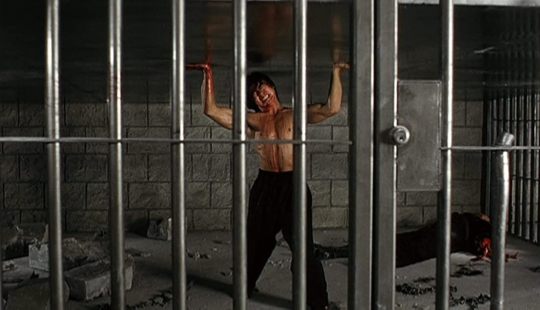
This movie had been on my radar for years, well before I'd developed any real interest in Hong Kong cinema. Its reputation was based on its numerous scenes of outrageous ultraviolence, the appeal of which could be conveyed easily in gif format. Having seen the whole movie now, I can confirm those gifs did not misrepresent the film. Every few minutes, and sometimes more frequently, there's a scene of violence that seems to defy what should be physically possible. Want to see someone punch through another character's stomach? Want to somebody explode another man's skull with their bare hands? Want to see a character commit seppuku and then try to strangle their opponent with their intestines? You need only wait a few minutes for the next gruesome highlight.
Of course, this means that the violence is set up like a series of gore gags, and likely as a result of the behind the scenes requirements to pull them off, lacks the speed and physicality I associate with Hong Kong action cinema. So it is perhaps not an immediate favourite, but I think the simultaneously more deliberate and punchy delivery of these scenes helps it work on its own terms. This is an adaptation of a manga (which I have not read), and the way the movie stylizes the dramatic qualities of such scenes, having characters stand off and bark out their motivations and then exploding into violence, brings to mind a live action cartoon. The prison environment here is similarly stylized, the guards' uniforms perfectly crisp and colour-coordinated, the interiors like a cartoon rendering of a prison, without the grit a real one would have. (In that respect, the movie stands in stark contrast with another recent viewing, Escape from Alcatraz, which was shot in its namesake and benefits tremendously from the physical reality of its environment.)
That stylization extends to the casting, with a cartoonishly bulked up Fan Siu-Wong in the lead role (a startling sight after seeing him play a scrawny punk in Righting Wrongs earlier this month) and supporting roles primarily cast with grotesque-looking or downright ugly actors. (Sorry, I guess that's mean, but there are a lot of uggos in this, to the movie's benefit.) The movie finds ways to humanize a number of them, giving the proceedings a covert political charge, but the cast member who steals the show is the incorrigibly cruel Yukari Oshima. Oshima has always stood out to me in her girls with guns movies because of her off kilter, androgynous presence (which was even more noticeable when paired with the more overtly girlish Moon Lee), and this movie pushes that even further by casting her as a man, replete with weird male dubbing. Perhaps there is something objectionable here, but you want someone to give off sinister live action anime vibes, with the physicality to back it up? This is your gal.
4 notes
·
View notes
Text

Andy On vs. Fan Siu-Wong: Enfrentamiento épico en Deadly Impact. (Trailer Nuevo) 🔥
1 note
·
View note
Text





Herman Yau - The Untold Story (1993)
#film#Herman Yau#Cho Wai Kei#The Eight Immortals Restaurant#the untold story#Bat sin fan dim#Yan yuk cha siu bau#Anthony Wong Chau Sang#1993
13 notes
·
View notes
Text
On October 5, 1991 Riki-Oh: The Story of Ricky debuted in Japan.
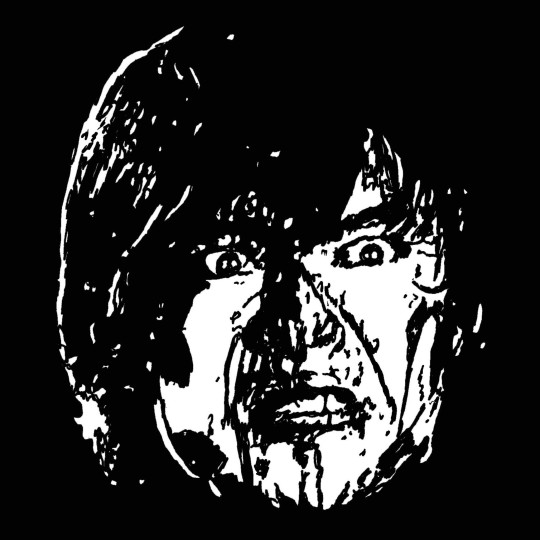
#riki oh: the story of ricky#story of ricky#riki-oh#lam nai choi#fan siu wong#golden harvest#splatter movie#splatter movies#splatter film#drug movies#dystopian film#dystopia#obscenity#hong kong films#tcm underground#drawnderground#black and white art#new art#new drawing#movie art#art#drawing#movie history#pop art#modern art#pop surrealism#cult movies#portrait#cult film
2 notes
·
View notes
Text


REVISTA ORIENTAL EDICIÓN DIGITAL
DESCARGA GRATUITA:
https://indd.adobe.com/view/9c20176e-e603-4718-b1d4-96ee9cc34e43
CONTENIDO:
Editorial: El mantel de chifa 3
Actriz asiática cerca de Oscar hollywoodense 6
Recopilan obras de literatos tusán 9
Tusán en el mundo de la tecnología empresarial 10
Linternas chinas alumbran el mundo 17
Tusán en emprendimiento de cuerdas 28
Exposición educativa en la APCH 30
Día Nacional de Japón 38
HOJAS SOBRE LAS RAÍCES : ANTOLOGÍA DE AUTORES PERUANOS DE ORIGEN CHINO
Las hojas que se desprenden del árbol caen cerca de las raíces
落叶归根
Al cierre del año 2022, el español Ignacio López Calvo y el nacional Rodrigo Campos nos ofrecieron una primera selección de autores literarios peruanos con origen chino, que han cultivado o cultivan diversos géneros, que van desde la prosa hasta el ensayo pasando por la poesía y la narrativa.
Esta auroral antología es una realidad que seguramente habrá de dar forma a una secuencia, contribuyendo a una visión más amplia de la participación tusan en las letras, demostrando que la integración cultural va más allá de las fronteras territoriales y en un país que es crisol de razas.
Así, en base a los escritos se amplían los conceptos de la cosmovisión y refleja la aparición de discursos minoritarios diaspóricos que habían permanecido casi en silencio. Con este libro (virtual), López y Campos se abre un campo de investigación para llamar la atención, crítica y constructiva, en la construcción de la identidad peruana, poniendo énfasis en la complejidad de la identidad étnica.
En esta primera lectura, los nombres de August Kuan-Veng, Peter Zulen (Sulem) Aymar, Kathie Wong Loo (o Sui Yun), Siu Kam-wen, Henry Verastegui (Li) Pelaez, Roger Li Mau, Julius Villanueva Chang, Julia Wong Kcomt, Mario Wong, Mario Choy Nova, Luis Wong, Piero Che Piu, Gonzalo Macalapu Chiu, Alex J. Chang, Nilton Maa, Miguel Sanz Chu, Valeria Wong, Fanny Jem Wong, Theodore Rivero -Familia, Jorge Castillo Fan y Cosme Saavedra Foster.
Así también, Alexandra Arana Blas, Liliana Com Com, Jorge Huerto Wong, Jorge Black Tam, Fátima Sarmiento, Vedrino Lozano Achuy, Yossy Wong Kuoman, Hernán Hernández Kcomt y Lucero Medina Hú.
La antología cuenta con un total de 324 páginas, con licencia info:eurepo/semantics/openAccess.
#literatura peruana#poesía#literatura#cultura#poetas peruanos#poemas#corazón#fanny jem wong#antología#Ignacio López Calvo#August Kuan-Veng#Peter Zulen (Sulem) Aymar#Kathie Wong Loo (o Sui Yun)#Siu Kam-wen#Henry Verastegui (Li) Pelaez#Roger Li Mau#Julius Villanueva Chang#Julia Wong Kcomt#Mario Wong#Mario Choy Nova#Luis Wong#Piero Che Piu#Gonzalo Macalapu Chiu#Alex J. Chang#Nilton Maa#Miguel Sanz Chu#Valeria Wong#Fanny Jem Wong#Theodore Rivero -Familia#Jorge Castillo Fan
0 notes
